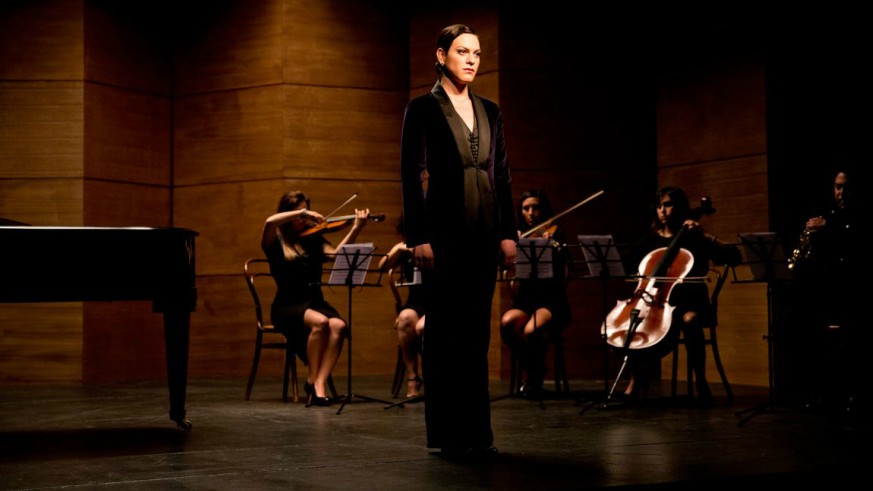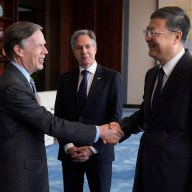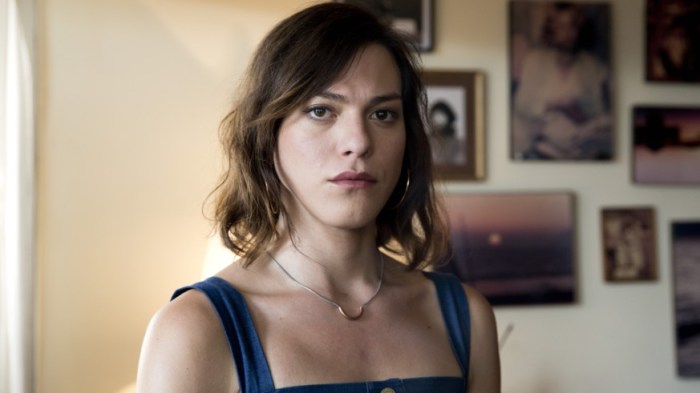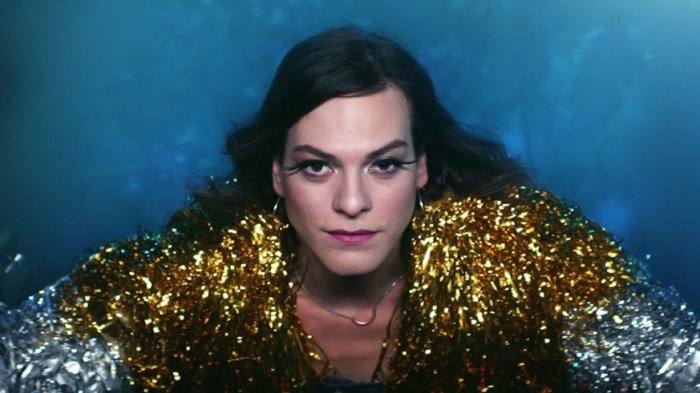In hindsight, Sebastian Lelio had absolutely nothing to worry about.
Not only has “A Fantastic Woman” been met with critical acclaim but it has been an awards season darling, notching up numerous awards, the peak of which arrived earlier this year when it received a Best Foreign Language Film nomination at the 90th Academy Awards.
But during the development and production of “A Fantastic Woman” co-writer and director Sebastian Lelio actually believed that the film would be destroyed by those that saw it.
“At the very beginning I thought they were going to destroy it. Because the subject is so divisive,” Lelio told me over the phone when I quizzed him about “A Fantastic Woman,” which tells the story of the transgender singer Marina, played by an astounding Daniela Vega, who is unable to grieve the death of her older lover Orlando due to the increasing interference of his family.
But the reaction has been much, much different. “Everywhere we have been it has been received with great love and warmth, and it has been an escalating process. We feel very lucky.”
Long before this positive response, though, Lelio had prepared himself for a fight. In fact, that was one of the main reasons why his interest in “A Fantastic Woman” initially grew and grew.
“After ‘Gloria,’ my previous film, I felt like I had an open territory in front of me. And I wanted it to be problematic. I wanted to get myself into new problems.”
“My co-writer and I started to play around with the idea of what happens when the person you love dies in your arms. That’s the worst place for that person to die. Especially if, for some reason, you are the unwanted one.”
“Then we wanted to explore the ordeal of that. The idea of this situation happening to a transgender woman just popped up. That was a milestone in the process.”
“I heard literally a clap in my head, because it sounded exciting, and beautiful, and sad, and difficult, and full of traps. It was dangerous. Morally dangerous, aesthetically dangerous, and these were all good signs.”
Almost immediately Lelio was confronted by, what he calls, “the casting problem.” But just as quickly Lelio realized it would feel “anachronistic” or “aberrant” to cast anyone other than a transgender actress.
After using Daniela Vega as a cultural ambassador during the development and writing of “A Fantastic Woman” it didn’t take long for Lelio to realize just how perfect she would be as Marina, and how much depth she would add.
“I knew, if we succeeded, the beauty of what she would bring to the film. She would move it into a different direction. I’m not saying that the film would be better, just different.”
“The film is polymorphic and it is a film that has different faces. It flirts with romantic cinema, with thriller, a character studies, a funeral, it is a film about a woman.”
“But at its center it is a documentation, a portrait of someone real. Daniela’s body and eyes and skin carry something that is very difficult for a cis gender actor to bring. The camera knows that. I really wanted that layer of complexity.”
Another reason why Lelio was so interested in “A Fantastic Woman” was how it linked up to his past work, especially the female led “Disobedience” and “Gloria.”
“I like that my films take women that are on the fringes of society and puts them in the absolute center. They are women that wouldn’t deserve a film, so to say. And the gesture of the film is to say you are a film, you deserve a film.”
“Even though you would be a secondary character in another film, you are going to be a central character here. It is going to be an exaltation and an emanation of you. There is this element that is really moving to me about this operation. It just thrills and touches me.”
Lelio insists that “A Fantastic Woman’s” timeliness, as its release coincides with an increased discussion about the chances in Hollywood for LGBTQ actors, has even taken him by surprise.
“That’s not anything I could calculate. There was a timely element with ‘Gloria.’ I felt like when ‘Gloria’ came out everyone was talking about women of that age, and women in general. In the case of ‘A Fantastic Woman’ it was even more apparent.”
“Because when we were writing the transgender subject hadn’t exploded in popular culture. It did explode when we were shooting.”
“That’s when I saw the first magazine covers in Time Magazine and there was piece in the National Geographic about the shifting landscape of sexuality and that came out three weeks before we released the film at Berlinale.”
“Suddenly everyone was talking about it. To me it was always an urgent film, but suddenly it became clear that it was urgent.”
Lelio is well aware that this urgency for “A Fantastic Woman” will help the film to connect with both its intended audience, and a wider one, too. Especially if he has done his job right.
“If I wanted to be a political activist, I could be, but that’s a different realm. I make films and that’s my duty and that’s my call.”
“My belief is that if I make them work and effective and beautiful devices then they will have the strength to maybe offer the spectator a new perspective a new angle on things. That’s when you can instigate change. Because if you change the way you look at things the things you are looking at change. So that’s the power of cinema.”
In order to do just that, Lelio made sure that Marina’s “own identity was always at the forefront” of “A Fantastic Woman,” which meant that the film’s audience was constantly being challenged and provoked.
“We are asking, ‘What are you seeing? Are you seeing a woman? Are you seeing a man? A transgender woman?’ The film opens enough space for the spectator to see everything from different angles.”
“There is space for the spectator to see whatever they want to see projected onto Marina. In order for that effect to work we needed to create an enigmatic character. So it was the perfect container for the viewer’s fears, desires, and projections.”
You can see what reaction “A Fantastic Woman” brings out of you when the film is released in New York on February 2.

















